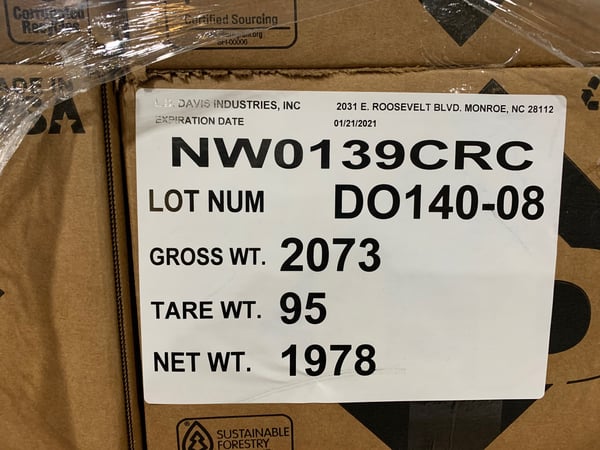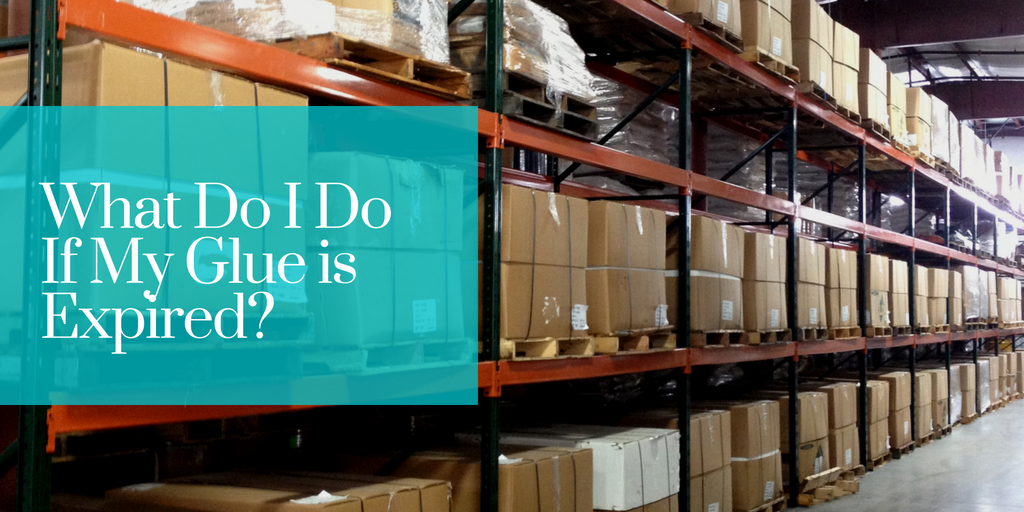Just like with most natural products, glues have an expiration date. You'll notice, especially with your natural glues (protein/gelatin based) and liquid water-based glues, that after they have hit their expiration date they may become moldy and unusable.
What do you do if your glue is expired?
First things first, if your glue has become moldy, we advise against trying to "make it work."
You don't want to run expired glue on your equipment and potentially ruin your perfectly good substrates and end product. You'll end up wasting a lot of time and money that way. If the glue is bad, the end product likely will be too.
Past the expiration date, the glue will not provide the appropriate bonding properties, and you will likely have to discard it. It's very important to make sure that you properly dispose of glue.
Expired Natural glue
Each gelatin glue shipment that leaves the LD Davis manufacturing facility will contain a label on the package containing important product information. You will be able to find the glue expiration date on this label.

Most of our natural glue formulas have a one-year shelf life (there are some exceptions to this—be sure to check your product's Technical Data Sheet).
It is worth mentioning that if your glue is properly stored in a cool, dry place, it may last beyond the expiration date. If it is past the expiration date, make sure to thoroughly check the product to determine if there is any mold or hard glue cakes.
Why You Should Be Using Natural Protein Glue
If the glue seems compromised in any way, it is best to dispose of it.
EXPIRED LIQUID GLUE
Liquid water-based glues work a little differently when it comes to expiration dates.
Exposure to air will shorten the life of the product, so it's best to keep them airtight until you are ready to use them. The "manufactured date", but not the expiration date, will be on the label. The expiration date will vary depending on when the container is opened.
.jpg?width=600&name=IMG_0307%20(1).jpg)
Most of our liquid glue formulas have a shelf life of 90 days after the container is opened (there are some exceptions to this - be sure to check your Technical Data Sheet).
Disposing Glues Properly
All of our raw materials and their federally mandated material safety data sheets, instruct the glue user to dispose of any excess material properly following local laws and ordinances. It's best to check with your local ordinance to confirm that you are properly disposing of your glue.
Most times, the local ordinance will want to review the Safety Data Sheet for your glue product to determine how it should be disposed of.
Natural gelatin-based glues are generally considered non-hazardous solids that can be added to the solid waste stream without any issue.
Small amounts of liquid glue can be added to absorbent granules, like Oil-Dri, and then disposed of into the solid waste stream. A waste handling company will need to pick up drums and totes of liquid glue.
If possible, we always recommend recycling your glue packaging.
Originally published: February 6, 2018
Updated: February 4, 2020



